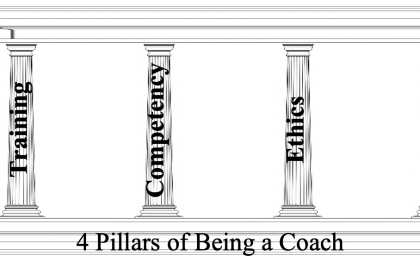
By Bash Sarmiento https://www.instagram.com/kuyabashsarmiento/
A positive work culture is more than a nice-to-have—it’s essential for the success and sustainability of your company. Happy employees are more productive, loyal, and motivated, directly impacting the growth and reputation of your business. This article explores strategies you can use to show your employees how much you value them, helping you foster a work culture that drives your business forward.
Personalized Recognition
In small businesses, where teams are often tight-knit, the impact of personalized recognition cannot be overstated. Unlike larger corporations, where employees may feel like just another number, small businesses have the unique advantage of truly knowing each team member. This intimate knowledge allows for tailored recognition that resonates more deeply.
- Public Praise: Recognize achievements in team meetings or through company-wide emails. Highlight specific contributions and explain how they have positively impacted the business. This boosts the individual’s morale and sets a standard for others.
- Personal Notes: A handwritten thank-you note can go a long way. It shows that you took the time to acknowledge their effort personally, whether they’ve just closed a big deal or consistently show up with a positive attitude.
- Anniversaries and Milestones: Celebrate work anniversaries, birthdays, and other personal milestones. This can be as simple as a small office celebration or a personalized gift. It’s about recognizing that they’re not just employees; they are individuals who contribute to the company’s culture and success.
Invest in Employee Development
Investing in your employees’ growth shows that you see them as more than just workers. They are long-term partners in the success of your business.
- Training and Workshops: Offer opportunities for employees to attend relevant workshops or online courses. This helps improve their skills and boosts their confidence and loyalty to your company.
- Mentorship: Pair less experienced employees with seasoned professionals. This builds relationships within the team and fosters a culture of knowledge-sharing and mutual support.
- Coaching: Coaching is a core skill for leaders. Additionally, people skills and communication skills are the number one deficiency in the workplace today. This program teaches and enhances these skills, offering you the opportunity to exceed expectations in your career field. The Center for Coaching Certification offers coach training to a vast number of diverse professionals who simply want to enhance their skills, from sales professionals to attorneys and CEOs, from health care professionals to small business owners and NPO employees, from professional trainers or speakers to HR professionals. In short, anyone working in any industry, interacting with clients or employees, benefits from the skills developed in coach training.
Create a Supportive Work Environment
A supportive work environment is the foundation of a positive work culture. When employees are invited to speak up, ask for help, and balance their work and personal lives, they are more dedicated and productive.
- Open Communication: Encourage employees to share their ideas, concerns, and feedback. Regularly scheduled one-on-one meetings can also help in understanding their wants and addressing any issues before they escalate.
- Work-Life Balance: Offer flexible working hours or the option to work from home when possible. This flexibility is particularly appreciated in small businesses, where resources may be limited and the ability to adapt quickly can make all the difference.
- Mental Health Support: Small businesses can foster a supportive environment by acknowledging the importance of mental health. This can include providing access to counseling services, organizing stress-relief activities, or simply promoting a culture where it’s okay to take a mental health day.
Offer Meaningful Perks and Benefits
While small businesses may not be able to offer the same level of benefits as large corporations, they can provide perks that are meaningful and tailored to their employees’ interests.
- Health and Wellness Programs: Provide access to wellness programs, gym memberships, or even in-office yoga sessions.
- Bonuses and Incentives: Even if it’s not financially feasible to offer large bonuses, consider smaller, more frequent incentives. This can be a quarterly bonus tied to company performance or a special reward for meeting specific targets.
Foster a Sense of Community
A strong sense of community within the workplace can significantly enhance job satisfaction and employee retention. Small businesses have the advantage of fostering close-knit relationships among employees, which can lead to a more cohesive and supportive team.
- Team-Building Activities: Organize regular team-building activities, such as off-site retreats or casual get-togethers. When the weather is nice, you can organize a team picnic, where everyone can share and indulge in their favorite picnic foods, creating a relaxed atmosphere outside the workplace. These activities help build relationships and improve communication within the team.
- Community Involvement: Encourage your team to participate in community service or charity events. This strengthens the bond among employees, and it also boosts the company’s reputation in the community.
- Employee-Led Initiatives: Empower employees to lead initiatives that align with their passions, like starting a recycling program in the office or organizing a charity drive. This fosters a sense of ownership and pride in their workplace.
Encourage Employee Input and Innovation
Employees are more likely to feel valued when they know their opinions and ideas are heard. In a small business, where every team member plays a crucial role, fostering a culture of innovation can lead to significant growth and improvement.
- Idea Box or Suggestion Platform: Create a space where employees can submit their ideas for improving the business. Whether it’s a physical suggestion box or a digital platform, review and implement feasible ideas, and credit those who contributed.
- Collaborative Decision-Making: Involve employees in decisions that affect the entire team. Whether it’s choosing the next project or deciding on a new office policy, collaborative decision-making can lead to better outcomes and a more motivated workforce.
- Celebrate Innovations: When an employee’s idea leads to a positive change, recognize and celebrate it to motivate the individual and encourage others to contribute their ideas.
Conclusion
A positive work culture is more than just offering perks or throwing the occasional office party. It is about creating an environment where employees feel valued, supported, and motivated to contribute to the company’s success.
To achieve this, demonstrate a consistent effort and a genuine commitment to your employees’ well-being. The rewards—a loyal, motivated, and productive team—are worth it. As a small business, your employees are your greatest asset, and by showing them how much you appreciate their hard work, you’ll build a foundation for long-term success.





